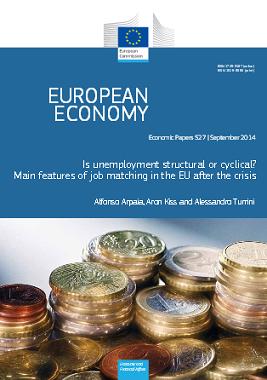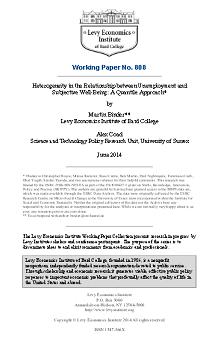Pilkington, P. (2014) “Is Economics a Science? Dogmatic Economics Vs. Reflective Economics“, Fixing the Economists Blog, 22 September. The question asked in the title of this post is actually somewhat of a trick. It is a trick because it all depends upon how you define ‘science’. Often when people say that economics is a science what they are doing is defining ‘science’ in such a way that economics fits the …Read More
Europe’s Single Supervisory Mechanism: Most small banks are German (and Austrian and Italian) – a closer look at the ECB’s list shows that the smaller banks are concentrated in a limited number of countries, much more so than larger ones
Véron, Ν. (2014) “Europe’s Single Supervisory Mechanism: Most small banks are German (and Austrian and Italian) – a closer look at the ECB’s list shows that the smaller banks are concentrated in a limited number of countries, much more so than larger ones“, Bruegel Think Tank, 22 September. A well-known limitation of Europe’s banking union is the fact that most banks in the euro area will escape direct supervision …Read More
Is unemployment structural or cyclical? Main features of job matching in the EU after the crisis
Arpaia, Α., Kiss, A. & Turrini, A. (2014) “Is unemployment structural or cyclical? Main features of job matching in the EU after the crisis“, European Economy, European Commission Economic Papers 527, September. The paper sheds light on developments in labour market matching in the EU after the crisis. First, it analyses the main features of the Beveridge curve and frictional unemployment in EU countries, with a view to isolate …Read More
The Euro Trap. On Bursting Bubbles, Budgets, and Beliefs
Sinn, H.-W. (2014) The Euro Trap. On Bursting Bubbles, Budgets, and Beliefs, Oxford University Press 2014. This book offers a critical assessment of the history of the euro, its crisis, and the rescue measures taken by the European Central Bank and the community of states. The euro induced huge capital flows from the northern to the southern countries of the Eurozone that triggered an inflationary credit bubble in the …Read More
Deep roots or current policies – what drives sustained prosperity differences across locations?
Delgado, M., Ketels, C., Porter, M. & Stern, S. (2014) “Deep roots or current policies – what drives sustained prosperity differences across locations?“, VoxEU Organisation, 18 September. There is a consensus among economists that ‘deep roots’ – geography, natural endowments, and institutions – are important determinants of prosperity differences across countries. This column argues that deep roots matter, but they are neither the whole story nor an excuse for …Read More
Entry and Exit in OTC Derivatives Markets
Atkeson, Α., Eisfeldt, Α. & Weill, P. O. (2014) “Entry and Exit in OTC Derivatives Markets“, VoxEU Organisation, 17 September. Entry and trading in over-the-counter (OTC) derivatives markets have received considerable attention. However, many critical questions remain unaddressed. This column describes a formal study of banks’ incentives to enter and trade in OTC derivatives markets. In equilibrium, only large banks enter to become dealers, and middle-sized banks only enter …Read More
Shadow banking and the economy
Moreira, A. & Savov, A. (2014) “Shadow banking and the economy“, VoxEU Organisation, 16 September. The prevailing view of shadow banking is that it is all about regulatory arbitrage – evading capital requirements and exploiting ‘too big to fail’. This column focuses instead on the tradeoff between economic growth and financial stability. Shadow banking transforms risky, illiquid assets into securities that are – in good times, at least – …Read More
Heterogeneity in the Relationship between Unemployment and Subjective Well-Being, A Quantile Approach
Binder, M. & Coad, A. (2014) “Heterogeneity in the Relationship between Unemployment and Subjective Well-Being, A Quantile Approach“, Explorations in Theory and Empirical Analysis, Working Paper No. 808, Levy Economics Institute, June. Unemployment has been robustly shown to strongly decrease subjective well-being (or “happiness”). In the present paper, we use panel quantile regression techniques in order to analyze to what extent the negative impact of unemployment varies along the …Read More
Restoring financial stability with economic growth
Boughton, J. (2014) “Restoring financial stability with economic growth“, VoxEU Organisation, 15 September. The international financial system is not working fine and reforms of regional and global institutions are much needed. This column discusses some of the transformations that the IMF could implement in order to keep pace with the changes in the world economy. One problem for the credibility of the IMF is the G20 in its current …Read More
Parallels to 1937
Shiller, R. J. (2014) “Parallels to 1937“, Project Syndicate Opinion Page, 11 September. The depression that followed the stock-market crash of 1929 took a turn for the worse eight years later, and recovery came only with the enormous economic stimulus provided by World War II, a conflict that cost more than 60 million lives. By the time recovery finally arrived, much of Europe and Asia lay in ruins. The …Read More








